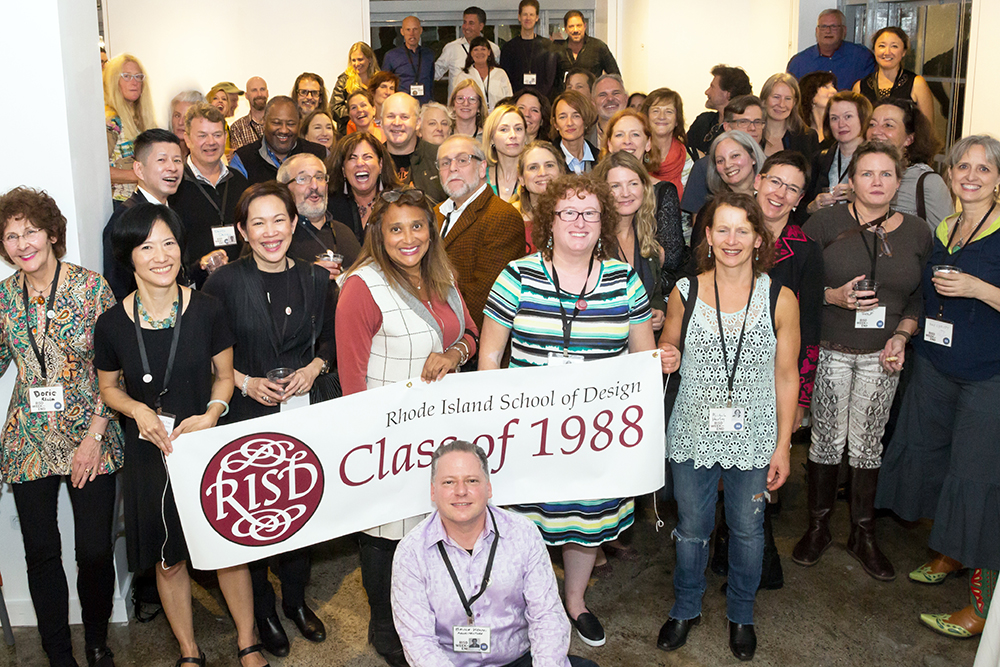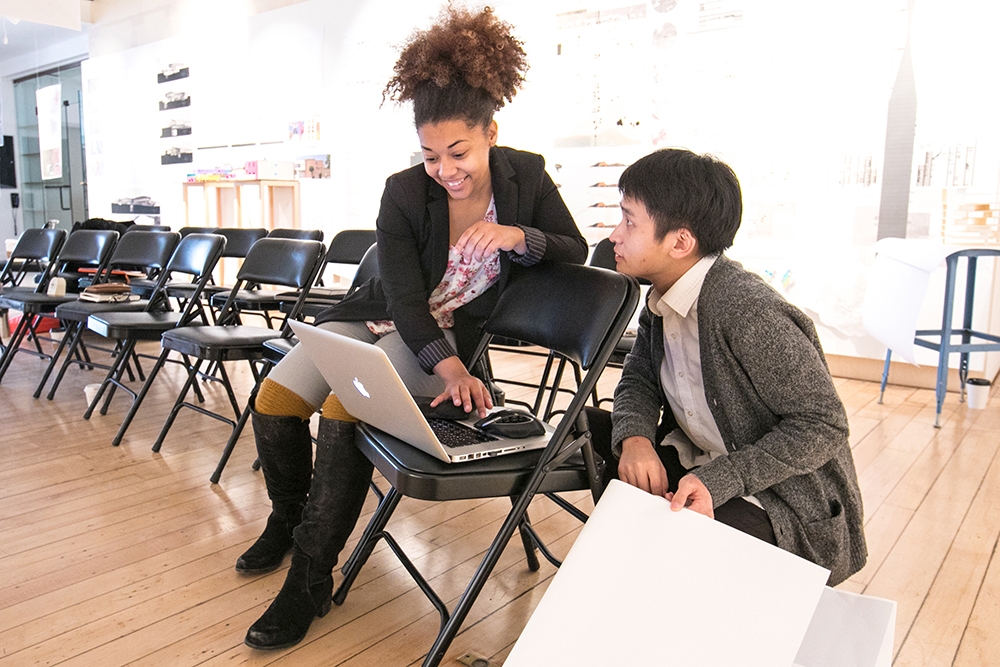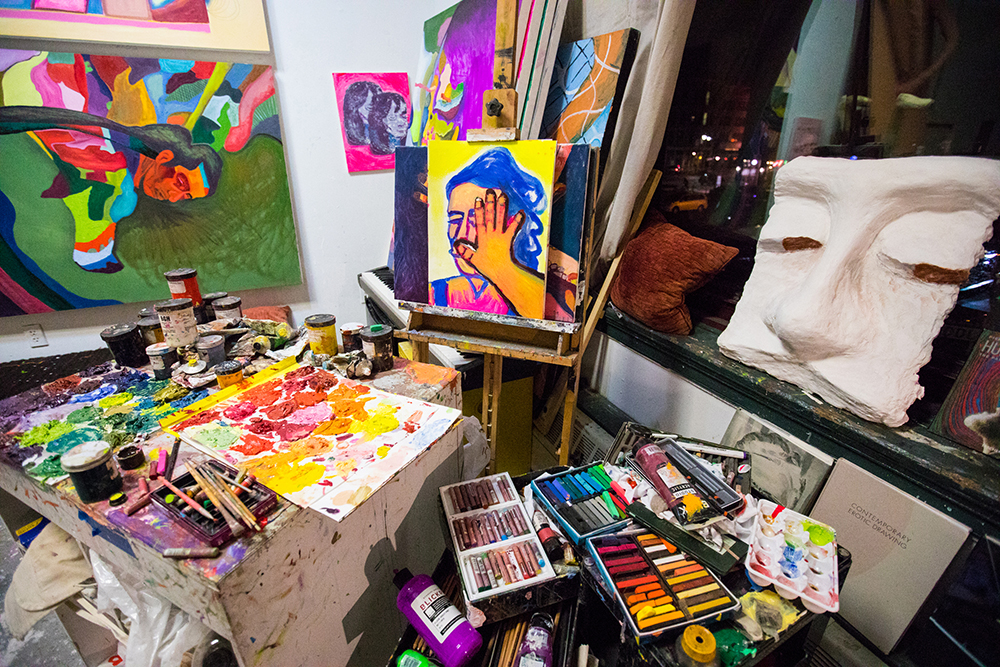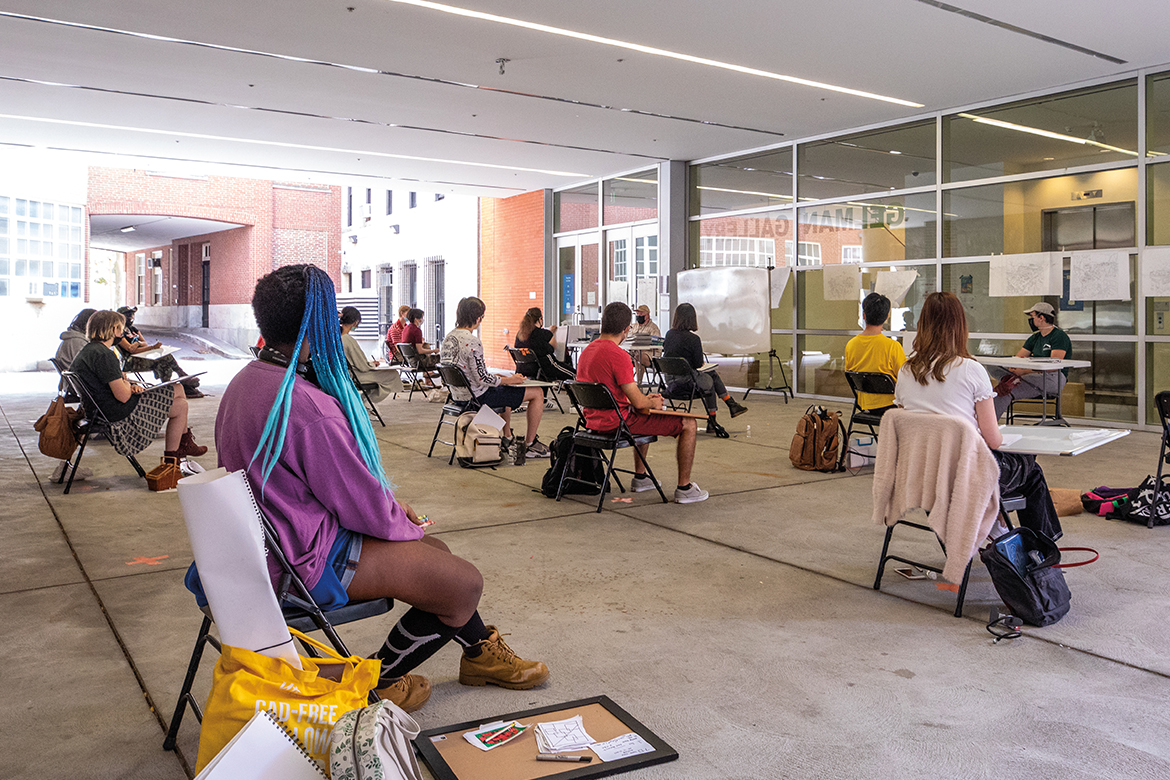
Integrating New Ways to Learn
Generous support from the Davis Educational Foundation and Fred M. Roddy Foundation spurs teaching innovation.
At the outset of the COVID-19 pandemic in March 2020, RISD was forced to close the campus and move to online learning. This sudden shift presented a particularly thorny set of problems. How would the college deliver its hands-on, immersive teaching model in a remote environment?
As it became clear that the global health crisis would continue into the 2021–22 academic year, RISD worked to bring students back to campus safely by developing a hybrid approach. This dynamic and flexible model was painstakingly built to adhere to public safety guidelines, to deliver an outstanding educational experience and to adapt what worked well in the spring semester to yet another learning environment—a de-densified campus with students studying in person and online. The college developed a combination of in-person instruction for practice-based components and online instruction for primarily theoretical, conceptual and digital fabrication components. This approach offered a collaborative experience to students on campus and those off campus who could not return for a variety of reasons.
RISD understood that it needed to do much more than install web cameras to support learning in its hybrid model. Through careful planning, it identified critical areas where the following investments in technology were essential: a uniform digital platform for course information, online fabrication access to support making, audiovisual equipment for classrooms and studios and a laptop loaner program to ensure every student had 24/7 access to a computer. The Fred M. Roddy Foundation invested in this broad set of technological tools to ensure that students could participate fully in RISD courses and making experiences. This generosity supplements the Fred M. Roddy Foundation Fellowship, established in 1975 to support RISD graduate students.
Conducting critique in a hybrid environment was another challenge. The Davis Educational Foundation of Maine provided a generous grant to support a one-year license for Miro, a collaborative online whiteboard platform designed for remote and distributed teams. Miro has helped faculty more effectively teach students living on its de-densified campus along with those learning remotely.
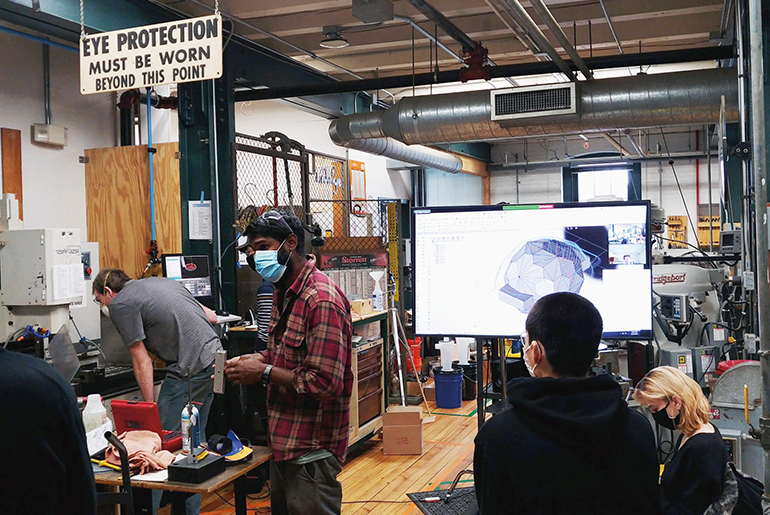
“By pivoting to a digitally driven remote learning model, RISD Architecture’s graduate Drawings course found new opportunities to interrogate drawing representation, methodology and visual curiosities. Asynchronous tutorials and weekly discussions centered course dialogue on our Miro whiteboard virtual gallery. There we reviewed, annotated and exhibited iterative pinup works,” says David Ross, who teaches this and other Architecture courses. “This allowed for simultaneous interactions and transformed the possibilities of collaboration. Rather than upload our drawings one week at a time to an archival folder, we created a communal project containing over 1,400 unique works. By posting everything to one workspace, conversations and critiques could quickly jump back and forth between works produced weeks earlier, keeping us focused on authoring new architectural speculations.”
The many adaptations forced by the pandemic also have yielded an unanticipated benefit: academic departments have been bringing renowned visiting faculty and internationally acclaimed critics into classes because being physically present was no longer required. The hybrid model—challenging to develop, implement and execute—has been effective, and the college owes a great debt of gratitude to the Roddy and Davis foundations and to all in the larger community who have supported RISD’s delivery of an excellent art and design education in such a complex environment.

